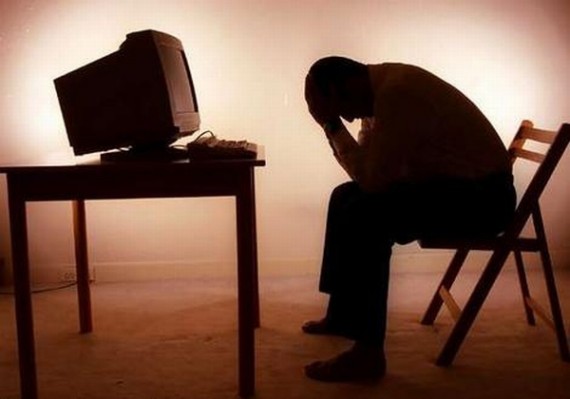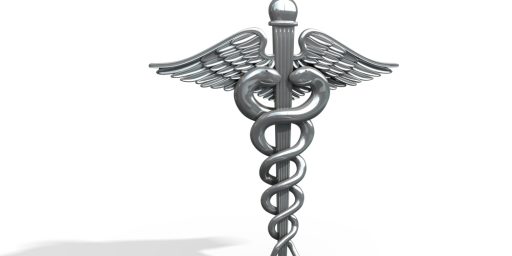Jared Loughner And The Sorry State Of Mental Health Care, Part II
We really need a better understanding of mental health disorders in this county, and events like those over the weekend underscore this fact.
 Earlier today, Doug Mataconis beat me to this topic (as I had intended to bring it up myself, but time did not allow), but I wanted to further elaborate upon on the notion that the real issue that we need to be addressing above all else in the wake of the Tucson shootings is the state of attitudes and policies on mental health in the United States.
Earlier today, Doug Mataconis beat me to this topic (as I had intended to bring it up myself, but time did not allow), but I wanted to further elaborate upon on the notion that the real issue that we need to be addressing above all else in the wake of the Tucson shootings is the state of attitudes and policies on mental health in the United States.
If we consider the cases of Jared Loughner, Nidal Hasan (the Fort Hood Shooter), and Cho Seung-hui (the VA Tech shooter) we see three cases wherein clear indications of previous mental problems had been noted, and yet were inadequately addressed. All had some kind of paper trail, with Hasan’s being the most complete (and hence the most egregious of the three) and yet each of the three perpetrated horrid violence.
Now, I am no expert on this issue and nor do I have an easy solution to the problem, but I know based on some experience with these issues in far less extreme circumstances (both personal and professional) the following to be true (and understand, I know that some who read this do understand the following, but as a society it is my observation that we are quite deficient):
1) Mental illness is poorly understood. We understand bacterial and viral infections and the potential for genetic defects of a physical nature, but we really don’t understand (from a general public perspective) mental disorders. Indeed, we often oversimplify the world into “normal” and “crazy.” Who wants to say that they, or those they love, are “crazy?”
Indeed, in some mainstream religious circles the mental health profession is considered a sham and mental disorders identified as spiritual problems rather than biological in nature.
2) Mental illness/disorders/difficulties are stigmatized in our society in ways that physical disabilities are not. If you have you have a physical problem, this is considered something beyond your control that needs rectification (physical therapy, surgery, medication, etc.). If you are infected with a virus or bacterium, then even better, as the problem comes from the outside and invades your body (it really isn’t your fault). However, if one has a mental disorder that requires treatment it is often considered a weakness from within. You can blame Swine Flu on a virus, but depression is seen, often, as simply the inability of a given person to cope with life.
Nobody wants to admit visiting a psychologist, psychiatrist, or therapist (often even to close friends and relatives). Certainly no one wants to admit taking medications for a mental disorder.
3) Treatment for mental difficulties can be difficult to find. Finding a general practitioner or dentist is relatively easy, but what if you need a psychologist or psychiatrist? Where do you look? How do you know if they are competent? Do most people even know the difference? For that matter, it is quite likely that while there is a surfeit of dentists in your town, there is likely a dearth of psychologists, et al.
4) Insurance for mental difficulties is often incomplete or nonexistent. Medical insurance for these matters is often nonexistent or woefully inadequate (and in this case I speak in terms of people who have otherwise good employer-provided care, forget it if one has cut rate coverage).
While I concur with Doug (and James Joyner in a comment) that we do not need a system where people are easily institutionalized against their will, we do need to address these issues.
I am hopeful that if we make strides in the areas noted above that these issues will be better addressed in society writ large. Perhaps at some point in the not too-distant future it will be easier for parents to do for their children with mental problems what they currently do for children with physical problems (or, via friends or even, in some cases, public health officials).
If one’s child has itchy lesions all over their body, we take them to the doctor. However, we often dismiss behavioral issues (and don’t want to seek help lest we be branded bad parents).
I must confess, I am wondering why Loughner’s parents did not seek help for their son (especially after Pima Community College said he would not be readmitted without clearance from a mental health professional). Perhaps that question will be answered, perhaps it won’t.
As noted, I am not suggesting a specific solution here, but rather stating that these are all issues that we, as a society, need to consider. I suspect that as our knowledge of the chemistry of the brain expands, so too will our understanding of how to deal with people with such difficulties.






***We really need a better understanding of mental health disorders in this county, and events like those over the weekend underscore this fact.
***
Yup, liberal politicians, liberal media people, and liberal commentators at OTB are ******* crazy!!!!!!!
What can we do………..
Whackos are everywhere:
http://www.thehighroad.org/showthread.php?t=64119
Jim told me (us, those in the hall that night) this guy was a complete whacko, that Jim and his wife had complained to the Sherriffs Dept for a year and nobody did anything. It still haunts him that he killed this man (and the relatives still haunt him as well) but the fact is, Jim complained about this individuals erratic behavior on multiple occasions… and got ZERO help. The best he could do was buy his wife a 9mm and himself a .45.
I do not have a clue as to what the answers are to these kinds of situations. The Constitution makes no allowance for these kind of crazies and to be honest, I don’t know how. Maybe we just have to accept the death of a 9 year old from time to time?
Tom P, this couldn’t be true. Mantis, Ponce and some others here claim the public is incapable of handling traumatic gun related situations.
GAP: you are helping make my point.
Violence in this society is a result of cultural/political fiascos. People who have broken intimate relationships (the sufferring from which feeds the economy) have a tendency to be violent. If the “democracy” had a vested interest in people’s love lives being happy, successful and in covenant they would be. Instead most of the population’s love lives are incredibly broken creating economic drivers, mental patients, suicides and violence. I suspect this shooter had a conflicted love life and perhaps was not socialized properly.
. . . and/or his soul colours were conflicted.
There’s a big difference between being “mentally ill” and being a murderer. There are millions of mentally ill people who never hurt anyone. Would a once-a-week visit to a shrink and a bottle of prozac have prevented this tragedy? I doubt it. This guy had been acting weird for years. If he was bothered by his own behavior, he would have seeked treatment. These people are not mentally ill. They have no limits on their behavior, which makes them dangerous, not sick. I do have a mental illness, major depression, which I am in treatment for. I am still responsible for my behavior, my relationships etc. This murderer is a sociopath. That means that he has none of the troubling issues of conscience that you and I have about things like killing people. That’s not sick, that’s evil.
***GAP: you are helping make my point.***well, we try:)
> This murderer is a sociopath. That means that he has none of the troubling issues of conscience that you and I have about things like killing people. That’s not sick, that’s evil.
Sorry, but your information is simply not correct. A paranoid schizophrenic (assuming that that is a correct diagnosis in this case) is not evil, they are simply so ill that their delusions can make them very dangerous. A sociopath suffers from Antisocial Personality Disorder, which is a different beast. Please do some research.
If only Leon Czolgosz had been preemptively subjected to the skills of a good phrenologist !
What’s all this brilliant analysis going to look like a hundred years from now?
4) Insurance for mental difficulties is often incomplete or nonexistent. Medical insurance for these matters is often nonexistent or woefully inadequate (and in this case I speak in terms of people who have otherwise good employer-provided care, forget it if one has cut rate coverage).
I would also point out that this is one area where government funded insurance isn’t much better. Government funded insurance much like private insurance often limits therapy visits to a specific number per fiscal year (often it is around 12 to 22), and limits in patient care or limits provider choice. It is especially difficult when a teenager or child has a mental illness.
Also it is very difficult to find a therapist in some under served areas.
There’s a big difference between being “mentally ill” and being a murderer.
I would agree that the vast majority of mentally ill people are not ever going to murder anyone and likely won’t ever commit a crime. But there are certainly mental illnesses when they spiral out of control that do lead to murder.
Sociopaths don’t actually meet the criteria for a mentally ill defense in a court of law.
Not too long ago, it was somewhat en vogue to have a psychoanalyst ( http://daviddfriedman.blogspot.com/2010/11/shrinktrainercoach.html ).
One fundamental problem is that, for some reason, we seem to expect people to identify themselves as mentally ill. But, of course, you can’t trust a mentally ill person to know that they are mentally ill or need help.